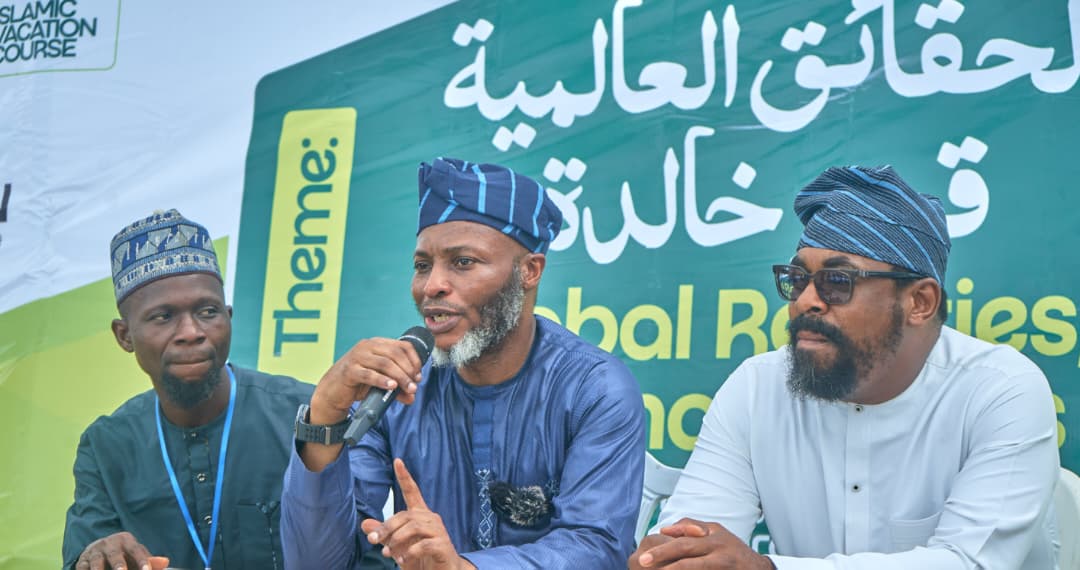Rabi-ul-Awwal is the third month of the Islamic calendar. And today is the 6th day, especially for Muslims who began the counting from last Sunday (August 24, 2025). Rabi-ul-Awwal connotes “The first month of spring”. But the most significant day in the history of mankind is the 12th of Rabi-ul-Awwal. The significance of the day is associated with the destiny and dignity of the man who was born on this day. The man born on this day was the answer to the supplication of Prophet Ibrahim offered thousands of years before his birth.
This supplication is captured thus in Qur’an 2:129: “Our Lord! And send forth among our descendants a messenger from their own midst who shall recite to them Your verses, and teach them the revealed Book and the way of prophetic wisdom, and purify them. Indeed, it is You, You alone who are the Overpowering One, the All-Wise.”
And the man was the glad tidings that Prophet Isa (Jesus Christ) gave to his people as the Comforter that would come after him. Also, his birth had been foretold in previous divine Books. The Jews recognized him as well as one recognizes one’s child. They would even pray against their enemies through him. Indeed, he is a great blessing for the whole of humanity (Qur’an 21:107).
The 12th of Rabi-ul-Awwal is especially important to the Muslims, because on this day the Prophet Muhammad (SAW) was born. This day takes them back to the memory of the one who led humanity from darkness to light and who is described by Allah (SWT) as “a mercy to all the worlds.”
The Muslims in the entire world remember the Prophet’s birth on the 12th of Rabi-ul-Awwal as an occasion meant to remind people of how the Prophet lived his life. Allah (SWT) directs humanity to follow in the footsteps of His beloved Messenger: “Verily, in the Messenger of Allah, you have a good example for him who looks to Allah and the Last Day, and remembers Allah much.” Qur’an 33:22.
Nowadays, remembering such a religious occasion is extremely important, especially for the youths. Forgetful of such sacred events and their significance, they have indulged in other pleasures. But when their hearts become abodes for the love of the Prophet, the best of the creation, they will emulate his practice who is an embodiment of love, sympathy and peace.
Such remembrance will instil in them the values, ethics and moral code practiced by the Prophet. This occasion serves a great purpose in that it brings the people closer to the teachings of Islam and to the Prophet’s way of life. It causes them to remember that the Prophet is a blessing for the whole universe, so they should also behave with others like him. His lesson of forbearance will motivate them to forgive even the bitter enemies.
On this occasion, the Muslim parents are encouraged to tell the stories of the Prophet to their children— stories that shed light on different aspects of his life: his birth, childhood, youth and adult life. Expectedly, this practice will kindle the flame of love in their hearts. And this message will set as a beacon of light for the future generations, so that they will live together in peace, fraternity and solidarity. His care for all of humanity sets the best example for the humanity.
Today’s violence-stricken, dark world can only be illuminated through the light of his teachings which show us how much tolerant he was towards others. This special time aims at the promotion of the culture of love and kindness, peace and harmony, justice and equality, restoration of human rights and denouncement of terrorism, in addition to amplifying the message of human dignity, forgiveness and accommodation.
Muslims globally will continue to celebrate the birth of Prophet Muhammad because he brought a message to the world which was universal and comprehensive. His was a message of love and gender equity; his was a message of racial equality; his was a message which is applicable everywhere and every time. Muhammad brought a message which attends to the political the same way it does the cultural. This explains the finality, in his persona, of the Prophetic enterprise. He says: “I am Muhammad, I am Ahmad, I am the al-Mahi (the Effacer) in that through me infidelity shall be erased; I am al-Hashir (Assembler) in that people shall be assembled after me. I am al-‘Aqib (the Last) Prophet of the Almighty to humanity.”
He was born in Makkah- that was and still is the epicenter of the world. He emerged in the precinct of the Ka’aba – the first sacred house built by humans for the worship of the Almighty. He was born as an heir to a prophetic tradition, the apogee of which was Prophet Ibrahim (AS).
Muhammad, son of Abdullah and Aminah became an orphan at age six as his father, Abdullah died before he was born and lost his mother six years after his birth. His foster-mother (Halimah), though from the backwater of Makkah, was of the noblest tribe – in her bosom, comfort and compassion found refuge.
In his teenage years, Muhammad belonged to the Hilf al-Fudul, an independent movement which placed high premium on honesty and good governance in Makkah. The moral at issue here is this: no matter how extremely insuperable the society may become, you should identify and belong to a group of young men and women whose sole interest would be the reinvention of their societies.
At 40, Muhammad was commissioned to Prophethood; he was commanded by the Almighty to proclaim a simple message: there is no deity worth of worship except the Almighty; Muhammad is His messenger. This message was simple but difficult.
In its effect, it implied the dissolution of all authorities and the recognition of and the secession of all power to the Almighty alone. With his prophethood, Islam became a religion which marked the culmination of all other religions; it was a call for the destruction of all principalities except that of the Almighty; it was a declaration that the most odious crime is not murder nor adultery but the setting up for worship, by humans, of deities other than the Almighty.
His reins as prophet and messenger lasted for 23 years 13 of which were spent in Makkah with extreme persecution in the hands of principalities and forces of darkness. Respite did not come until permission was given for migration to Madinah which later became the city of Islam and 10 years after the light of Islam spread all over the world.






